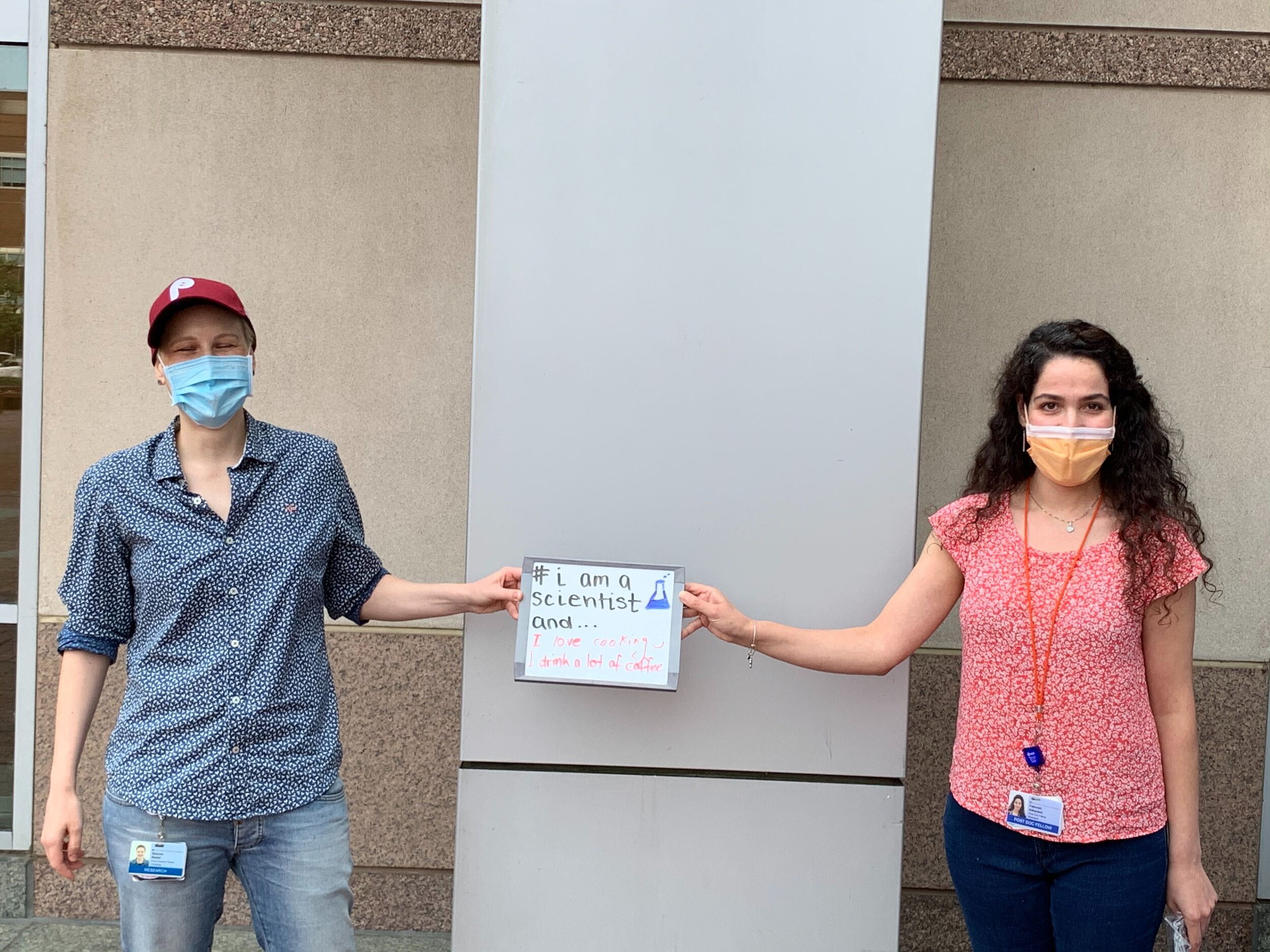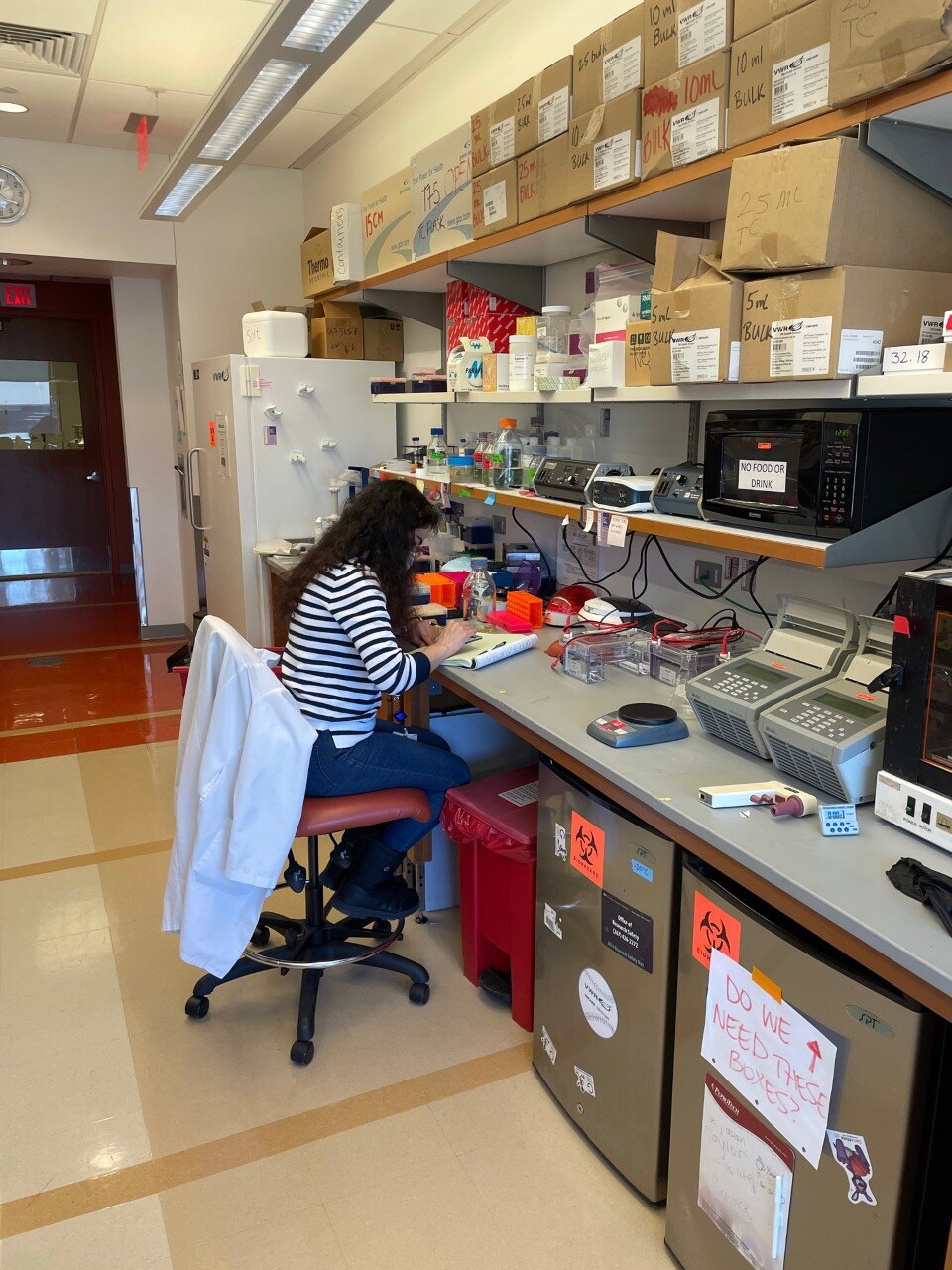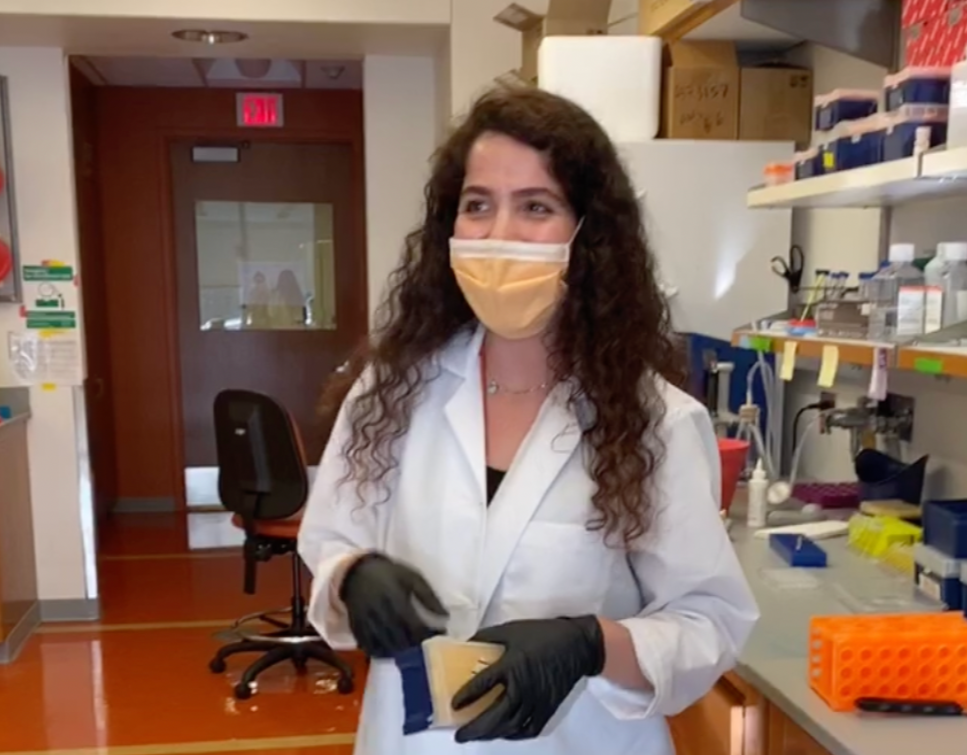Fatemeh completed her undergraduate studies at Shahid Beheshti University of Medical Sciences, and her PhD in 2017 at the Iran University of Medical Sciences, Tehran, Iran. Her graduate work uncovered a critical role for DNA damage pathways in some subtypes of leukemia.
Fatemeh sought to gain more in-depth research experience in the US after her graduation. She took on two projects: she collaborated between the Bernt laboratory and the laboratory of Dr. Tan, a systems biologist at CHOP, to study pathways that mediate poor response to initial chemotherapy in high risk ALL. This project is supported by the NCI/moonshot funded Human Tumor Atlas Network (HTAN). She established a pipeline for the sort and single cell transcriptomic/epigenomic analysis of minimal residual disease (MRD) in clinical samples at diagnosis and the end of Induction chemotherapy. Experience working in the clinical hematopathology laboratory at the Shariati hospital and later Noor Pathobiology Laboratory in Tehran proved crucial to the success of this project.
In parallel, she is studying the role of the transcription factor Gata2 in AML. Through a series of experiments examining leukemias with a defined range of Gata2 expression levels, she was able to determine that high levels of Gata2 promoted reduced sensitivity to chemotherapy, but leukemias were “addicted” to Gata2, while leukemias with lower expression levels tolerated the deletion of Gata2 but were more chemotherapy sensitive. She also contributed to a project determining the role of Menin in leukemias with Meningioma-1 translocations or overexpression.
Finally, she has designed the proposal that is aiming to devise strategies to harness DNA damage pathway inhibition for therapeutic purposes in high risk leukemias.
Fatemeh’s publications: https://pubmed.ncbi.nlm.nih.gov/?term=fatemeh+alikarami&sort=date
Contact: alikaramif@chop.edu
Fatemeh Alikarami (she/her)




